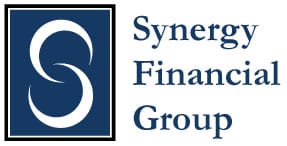Most would-be homebuyers start their journey by gathering a down payment. This money is crucial to snagging a mortgage and getting that much closer to homeownership.
But when you’re shelling out for hefty rent each month, paying for utilities, and chipping away at a stack of bills on top of that, it can seem impossible to save up for a down payment on a house. And after months of giving up daily lattes and takeout, and whittling down streaming services, maybe you’ve managed to squirrel away a few thousand at best. But is that enough for a starter home?
The answer is yes—and no. There are assistance options, including government programs that help with down payments. And some programs may allow you to skip down payments altogether—but they’re not for everyone. Here’s what the pros have to say about small down payments or even no down payments.
Ask your agent
Real estate agents don’t typically deal with the loan process. But most agents know lenders who have experience helping borrowers who don’t have a lot of cash for a down payment.
“The best advice that I could give is to get a couple of recommendations for loan officers in your area,” says Nathan Perkins Jr., an agent with Century 21 Envision in Upper Marlboro, MD. “Then ask each of them how much down payment you’ll need for pre-approval for a mortgage.”
You’ll need to hand over details about your income, debt, financial accounts, and employment history to get the ball rolling. Then, after the pre-approval applications are processed, lenders should tell you what programs you’re eligible for.
“There may be a program that would make even a few thousand enough for the down payment,” says Perkins.
How little can a down payment be?
“Well, $3,000 is not enough for a down payment on most houses,” says Jill Gonzalez, an analyst with WalletHub. “The lowest percentage of down payment required is 3.5% for an FHA loan. So $3,000 would be enough for an approximately $85,000 loan, although that’s way below today’s median home price of $300,000.”
Suppose you do find a home for $85,000, congratulations! But let’s say you have a few thousand dollars saved and find a more expensive home that would have you putting down less than 20% of the purchase price. In that case, keep in mind that borrowers who pay less than 20% typically have to pay private mortgage insurance, or PMI. The PMI is in addition to a monthly house payment, and typically ranges from 0.5% to 1% of your loan amount each year.
Loans with no money down
There’s still hope if you don’t have enough cash for a down payment. Some specialized loans don’t require a penny for people who qualify, such as a Veterans Affairs loan or USDA loan, which is backed by the Rural Development Guaranteed Housing Loan Program.
There are a few hitches involved, though. To be eligible for a VA loan, you must have served in the military, the National Guard, or the Reserves, or be the spouse of a service member who died in the line of duty. For the USDA loan, you have to buy a house that the Rural Development Program identifies as rural, defined as “open countryside and settlements with fewer than 2,500 residents.” Yes, a rural property can be a farm. But it can also be a house in a town a few miles from a city.
The USDA loan program also has other perks.
“The advantages of the government’s Rural Development Program also allows for flexible credit guidelines, low-interest rates, closing costs, and lower monthly mortgage insurance,” says Adam Fuller, a senior loan officer at Mortgage 1 in Grand Rapids, MI.
State-specific programs for low down payments
What if you don’t meet the eligibility requirements for a VA, FHA, or USDA loan? Many states have their own homebuyer programs.
“We often see first- and second-time homebuyers that may qualify for a variety of different options,” advises Fuller.
These programs help buyers score loans with down payment assistance, low down payments, and no closing costs.
Some states also offer “specialty” loans for homebuyers with disabilities, first-responders, teachers, and more. Before you hit up lenders, do a little digging yourself by visiting your state’s housing and development authority website to see what kind of programs it offers.
Don’t give up your dream of homeownership
“If you haven’t explored your options or spoken with someone with experience in finance or real estate, you could be selling yourself short,” says Fuller. “I once had a client literally shaking in my office because she was so concerned about her credit score, and three months later, we closed the loan on her first home.”
Fuller recommends signing up for homebuying counseling programs in your community.
“If you don’t know what’s holding you back, you’re already a step behind,” says Fuller. “Speaking with an expert is the best way to figure out what to do next.”
By Lisa Marie Conklin for Realtor.com
We are ready to help you find the best possible mortgage solution for your situation. Contact Sheila Siegel at Synergy Financial Group today.







